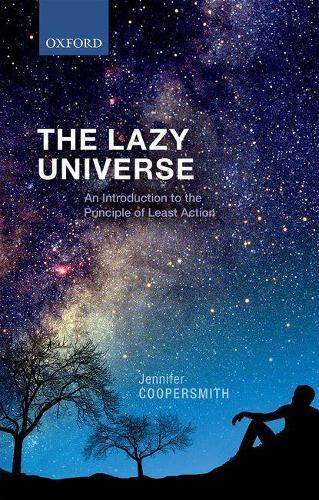Full Product Details
Author: Jennifer Coopersmith (Honorary Research Associate, Honorary Research Associate, La Trobe University, Australia)
Publisher: Oxford University Press
Imprint: Oxford University Press
Dimensions:
Width: 14.90cm
, Height: 2.30cm
, Length: 22.20cm
Weight: 0.508kg
ISBN: 9780198743040
ISBN 10: 0198743041
Pages: 280
Publication Date: 11 May 2017
Audience:
General/trade
,
General
Format: Hardback
Publisher's Status: Active
Availability: Manufactured on demand

We will order this item for you from a manufactured on demand supplier.
Reviews
The numerous appendices are usually at a more advanced level and condensed in style, but the reader may be entirely bypass them without loss of continuity in the main text. Aside from the invaluable advantage of seeing how a problem is solved, the reason for so many appendices is twofold: to provide a compact resource for the physicist and for the lay reader to know what subject headings to follow up at a later stage, if so desired. * George B. Kauffman, Community Alliance *
The first part is excellent reading for anybody with an interest in the history and philosophy of science. I also recommend the book to students in physics and mathematics who are willing to dig deeper into this subject after taking classes in analytical mechanics, and I believe that it is accessible to any student in STEM disciplines. Practitioners in physics from any sub-discipline will enjoy a refresh and a different point of view that puts their tools of the trade in a broader context. * Andrea Giammanco, CERN Courier * This book has a general audience: every practicing physicist - and a specific audience: every physics textbook writer. Envision and teach physics powerfully and directly with energy, action, and the Principle of Least Action. * Edwin F. Taylor, Senior Research Scientist Emeritus, Massachusetts Institute of Technology * This is a well written and comprehensible presentation of some of the most fascinating and fundamental principles which theoretical physics has uncovered. The author has done a great job in making accessible 'as if-laws' to a broader audience. * Helmut Pulte, Ruhr University Bochum, Germany * Inspired by the monumental work of Lanczos, Jennifer Coopersmith has constructed a beautiful exposition of the philosophical basis underlying classical mechanics. It has enough technical meat to be interesting to an expert, while remaining accessible to a novice. * Gerald Jay Sussman, Panasonic Professor of Electrical Engineering, Massachusetts Institute of Technology *
This book has a general audience: every practicing physicist - and a specific audience: every physics textbook writer. Envision and teach physics powerfully and directly with energy, action, and the Principle of Least Action. * Edwin F. Taylor, Senior Research Scientist Emeritus, Massachusetts Institute of Technology * This is a well written and comprehensible presentation of some of the most fascinating and fundamental principles which theoretical physics has uncovered. The author has done a great job in making accessible 'as if-laws' to a broader audience. * Helmut Pulte, Ruhr University Bochum, Germany * Inspired by the monumental work of Lanczos, Jennifer Coopersmith has constructed a beautiful exposition of the philosophical basis underlying classical mechanics. It has enough technical meat to be interesting to an expert, while remaining accessible to a novice. * Gerald Jay Sussman, Panasonic Professor of Electrical Engineering, Massachusetts Institute of Technology *
Author Information
Jennifer Coopersmith took her PhD in nuclear physics from the University of London, and was later a research fellow at TRIUMF, University of British Columbia. She was for many years an associate lecturer for the Open University (London and Oxford), and was then a tutor on astrophysics courses at Swinburne University of Technology in Melbourne while based at La Trobe University in Bendigo, Victoria. She now lives in France.




